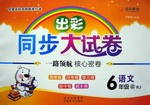题目内容
Who’s in control of your life? Who is pulling your string? For the majority of us, it’s other people – society, colleagues, friends, family or our religious community. We learned this way of operating when we were very young, of course.We were brainwashed.We discovered that feeling important and feeling accepted was a nice experience and so we learned to do everything we could to make other people like us.As Oscar Wilde puts it,“Most people are other people.Their thoughts are someone else’s opinions,their lives a mimicry(模仿),their passions a quotation.”
So when people tell us how wonderful we are,it makes us feel good.We long for this good feeling like a drug—we are addicted to it and seek it out wherever we can.Therefore,we are so eager for the approval of others that we live unhappy and limited lives,failing to do the things we really want to.Just as drug addicts and alcoholics live worsened lives to keep getting theirfix(一剂毒品),we worsen our own existence to get our own constant fix of approval.
But just as with any drug,there is a price to pay.The price of the approval drug is freedom--the freedom to be ourselves. The truth is that we cannot control what other people think.People have their own agenda,and they come with their own baggage and,in the end,they’re more interested in themselves than in you.Furthermore,if we try to live by the opinions of others,we will build our life on sinking sand.Everyone has a different way of thinking,and people change their opinions all the time.The person who tries to please everyone will only end up getting exhausted and probably pleasing no one in the process.
So how can we take back control? I think there’s only one way--make a conscious decision to stop caring what other people think.We should guide ourselves by means of a set of values—not values imposed from the outside by others,but innate values which come from within.If we are driven by these values and not by the changing opinions and value systems of others,we will live a more authentic,effective,purposeful and happy life.
67.What Oscar Wilde says implies that .
A.we have thoughts similar to those of others
B.most people have a variety of thoughts
C.other people’s thoughts are more important
D.most people’s thoughts are controlled by others
68.What does the author try to argue in the third paragraph?
A.Changing opinions may cost us our freedom.
B.We may lose ourselves to please others.
C.We need to pay for what we want to get.
D.The price of taking the drug is freedom.
69.It can be concluded from the passage that .
A. it’s better to do what we like
B.we shouldn’t care what others think
C.we shouldn’t change our own opinions
D.it's important to accept others’ opinions
70.The author tries to persuade the readers to accept his arguments mainly by .
A.analyzing causes and effects
B.providing examples and facts
C.discussing questions
D.making suggestions
So when people tell us how wonderful we are,it makes us feel good.We long for this good feeling like a drug—we are addicted to it and seek it out wherever we can.Therefore,we are so eager for the approval of others that we live unhappy and limited lives,failing to do the things we really want to.Just as drug addicts and alcoholics live worsened lives to keep getting theirfix(一剂毒品),we worsen our own existence to get our own constant fix of approval.
But just as with any drug,there is a price to pay.The price of the approval drug is freedom--the freedom to be ourselves. The truth is that we cannot control what other people think.People have their own agenda,and they come with their own baggage and,in the end,they’re more interested in themselves than in you.Furthermore,if we try to live by the opinions of others,we will build our life on sinking sand.Everyone has a different way of thinking,and people change their opinions all the time.The person who tries to please everyone will only end up getting exhausted and probably pleasing no one in the process.
So how can we take back control? I think there’s only one way--make a conscious decision to stop caring what other people think.We should guide ourselves by means of a set of values—not values imposed from the outside by others,but innate values which come from within.If we are driven by these values and not by the changing opinions and value systems of others,we will live a more authentic,effective,purposeful and happy life.
67.What Oscar Wilde says implies that .
A.we have thoughts similar to those of others
B.most people have a variety of thoughts
C.other people’s thoughts are more important
D.most people’s thoughts are controlled by others
68.What does the author try to argue in the third paragraph?
A.Changing opinions may cost us our freedom.
B.We may lose ourselves to please others.
C.We need to pay for what we want to get.
D.The price of taking the drug is freedom.
69.It can be concluded from the passage that .
A. it’s better to do what we like
B.we shouldn’t care what others think
C.we shouldn’t change our own opinions
D.it's important to accept others’ opinions
70.The author tries to persuade the readers to accept his arguments mainly by .
A.analyzing causes and effects
B.providing examples and facts
C.discussing questions
D.making suggestions
67—70 DBBA
略

练习册系列答案
 出彩同步大试卷系列答案
出彩同步大试卷系列答案
相关题目


